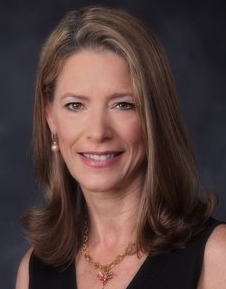
Tags
Related Posts
Share This
FLORIDA’S FIRST PRO BONO COLLABORATIVE DIVORCE
BEGINNING ANEW COLLABORATIVELY
Not all divorcing spouses want to engage in nasty court battles.
Such is the case of Tyler Nelson and Pamela Burton, who decided to end their marriage on an amicable basis without consuming years in costly and contentious litigation. They decided to use a form of private dispute resolution known as collaborative divorce for their child’s sake, under the tutelage of trained professionals, to forge a new and different bond as co-parents for the rest of their lives.
And, on September 20, 2013, they set a precedent as the first pro bono collaborative divorce ever completed in the state of Florida.
[The term ‘pro bono’ means ‘done without compensation for the public good’. That is to say, the professionals involved contracted to NOT receive payment for their services.]Adam B. Cordover, Esq., Vice President of the Collaborative Divorce Institute of Tampa Bay (“CDITB”), represented Tyler. Joryn Jenkins, co-chair of the Hillsborough County Bar Association Collaborative Law Section Pro Bono Committee and CDITB Executive Board Member represented Pamela. Jennifer L. Mockler, Ph.D., served as the collaborative team’s neutral facilitator, and Monica Ospina, CPA, served as Pamela and Tyler’s neutral financial professional.
Cordover, Jenkins, Mockler, and Ospina volunteered as part of a joint program of the Collaborative Divorce Institute of Tampa Bay, Bay Area legal Services, Hillsborough County Bar Association Collaborative Law Section, and Tampa Bay Collaborative Divorce Group.
“I strongly support a collaborative approach to divorce, particularly when children are involved,” said Mockler, a licensed psychologist. “A collaborative model minimizes the negative economic, social, and emotional consequences families often experience when they participate in a traditional, more adversarial court process.”
So what are the characteristics of collaborative divorce? The first is a safe environment. The attorneys are contractually barred from going to court. This formal agreement aligns the attorneys’ goals with the clients’ goals; the lawyers must withdraw if the parties are unable to reach an agreement, and the parties then may retain new litigation counsel. In addition, parties can speak freely in collaborative meetings; nothing they say will be used against them in court.
“When you go to court, it’s a destructive process,” said Jenkins. “Most divorces start with one party racing to the courthouse with their petition, trying to beat the other person. From the get-go, it’s war. But the collaborative process is a model that shows the couple how to get along and be reasonable.”
The second unique trait of collaborative divorce is transparency. The parties pledge to be honest and to share all pertinent information. This precludes the need for an expensive discovery process. And the use of a neutral financial professional obviates the more costly option of retaining battling experts.
The third distinguishing feature is privacy. Instead of publishing sensitive family issues and personal financials for the entire world to see, collaborative divorce enables clients to keep private information out of the public record.
“Privacy is the aspect of collaborative practice that attracts many professionals and business owners,” explained Cordover. “Rightly so, people do not want their private family issues aired in the public forum of the courthouse.”
Finally, the collaborative process allows parties to customize results to fit their family’s needs and values. In collaborative divorce, spouses can create solutions that a judge might not think of or be allowed by the law to order.
Judge Catherine Catlin, a family law judge in Hillsborough County, has been highly supportive of collaborative practice as a way for parties to settle their disputes. “I’m in favor of anything that helps families resolve issues outside of an adversarial setting,” she said. “I like the concept of giving control back to the parties. They’re given the time and forum to work things out.”
“Most people think of courtroom divorces as having winners and losers, though most judges warn parties in protracted courtroom battles that neither will be a winner,” says Jeremy Gluckman, who serves as co-chair of the joint collaborative pro bono project.
Nancy Lugo, pro bono manager of Bay Area Volunteer Lawyers Program, believes the collaborative process sets up clients to move forward in a way traditional divorce does not. “The Collaborative Divorce model prepares the couple for life after divorce by setting up household budgets, teaching the parties effective communication skills, and working out a parenting plan that will ultimately inure to the benefit of their children.”
In the end, Tyler said he found the divorce meetings to be mostly painless and was glad he and Pamela used the collaborative process, which helped them focus on their 7-year-old daughter. “Everything else was material stuff. I kept the furniture. She got the car. And now we both can focus on our daughter.”
You can find more information on collaborative divorce in Tampa Bay at http://www.collaborativedivorcetampabay.com. To learn more about local pro bono services, visit the website of Bay Area Legal Services at http://www.bals.org.
There has been a good deal of local and even national news coverage of this development. Check out some of it here:
http://www.wfla.com/story/
http://www.tampabay.com/news/
http://tbo.com/news/breaking-
A BayNews 9 seven-minute in-depth segment on collaborative divorce aired and a video is now on the web:
Attorney Jenkins is featured regarding this case at the 2 hour 36 minute mark of The Andrea Tantaros Show. http://www.
And the story is now posted on the national NBC website! http://www.nbcnews.com/id/
Contacts:
Adam B. Cordover  (Adam has also written for TWoCP here.)
(Adam has also written for TWoCP here.)
Counsel for Husband, Tyler Nelson
The LAW FIRM OF ADAM B. CORDOVER, P.A.
Tampa, FL
www.abcfamilylaw.com
Joryn Jenkins 
Counsel for Wife, Pamela Nelson
JORYN JENKINS & ASSOCIATES
Tampa, FL
www.jorynjenkinslaw.com









Share your thoughts here and in your network.